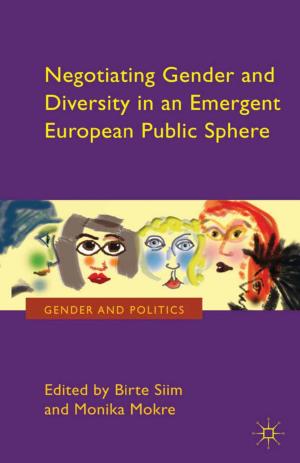A Visual Approach for Green Criminology
Exploring the Social Perception of Environmental Harm
Nonfiction, Social & Cultural Studies, Social Science, Crimes & Criminals, Criminology| Author: | Lorenzo Natali | ISBN: | 9781137546685 |
| Publisher: | Palgrave Macmillan UK | Publication: | November 7, 2016 |
| Imprint: | Palgrave Pivot | Language: | English |
| Author: | Lorenzo Natali |
| ISBN: | 9781137546685 |
| Publisher: | Palgrave Macmillan UK |
| Publication: | November 7, 2016 |
| Imprint: | Palgrave Pivot |
| Language: | English |
This book brings the visual dimension of environmental crimes and harms into the field of green criminology. It shows how photographic images can provide a means for eliciting narratives from people who live in polluted areas – describing in detail and from their point of view what they know, think and feel about the reality in which they find themselves living.
Natali makes the argument for developing a visual approach for green criminology, with a single case-study as its central focus, revealing the importance of using photo elicitation to appreciate and enhance the reflexive and active role of social actors in the symbolic and social construction of their environmental experiences. Examining the multiple interactions between the images and the words used to describe the socio-environmental worlds in which we live, this book is a call to open the eyes of green criminology to wider and richer explorations of environmental harms and crimes. An innovative and engaging study, this text will be of particular interest to scholars of environmental crime and cultural, green and visual criminologies.
This book brings the visual dimension of environmental crimes and harms into the field of green criminology. It shows how photographic images can provide a means for eliciting narratives from people who live in polluted areas – describing in detail and from their point of view what they know, think and feel about the reality in which they find themselves living.
Natali makes the argument for developing a visual approach for green criminology, with a single case-study as its central focus, revealing the importance of using photo elicitation to appreciate and enhance the reflexive and active role of social actors in the symbolic and social construction of their environmental experiences. Examining the multiple interactions between the images and the words used to describe the socio-environmental worlds in which we live, this book is a call to open the eyes of green criminology to wider and richer explorations of environmental harms and crimes. An innovative and engaging study, this text will be of particular interest to scholars of environmental crime and cultural, green and visual criminologies.















